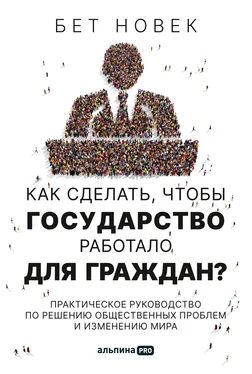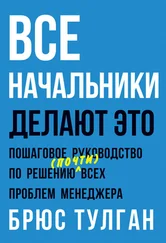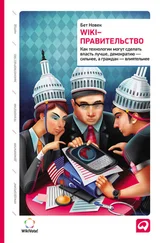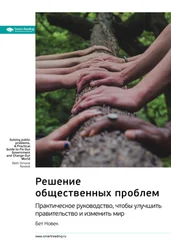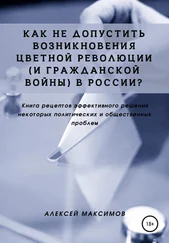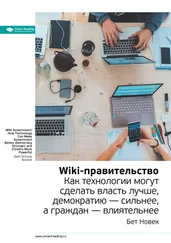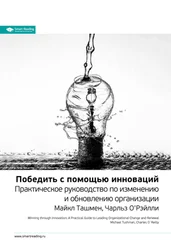Daniel Schuman and Zach Graves, “The Decline of Congressional Expertise Explained in 10 Charts,” Techdirt, October 18, 2018, https://www.techdirt.com/articles/20181018/10204640869/decline-congressional-expertise-explained-10-charts.shtml(«финансирование комитета снижено на $88 млн. С $327 млн в 111 созыве Конгресса до 239 млн»).
Kevin Kosar, “Why I Quit the Congressional Research Service,” Washington Monthly, January-February 2015, https://washingtonmonthly.com/magazine/janfeb-2015/why-i-quit-the-congressional-research-service/.
Kathy Goldschmidt, State of the Congress: Staff Perspectives on Institutional Capacity in the House and Senate (Washington, DC: Congressional Management Foundation, 2017).
Drew Desilver, “Congress’ Productivity Improves Somewhat in 2015,” Pew Research Center, December 29, 2015, http://www.pewresearch.org/fact-tank/2015/12/29/congress-productivity-improves-somewhat-in-2015/. После двух примечательно непродуктивных лет Конгресс набрал темп в 2015. В 1947 так называемый «Конгресс-бездельник» провел 906 законопроектов, в сравнении с 74 за созыв 1995-1996 годов или 55 за созыв 2013-2014 годов.
GovTrack, “Bills and Resolutions,” accessed May 25, 2020, https://www.govtrack.us/congress/bills/#bystatus.
Frank Baumgartner and Bryan Jones, The Politics of Information: Problem Definition and the Course of Public Policy in America (Chicago: University of Chicago Press, 2015), 64.
White House, “President Trump Holds a Listening Session with High School Students and Teachers,” YouTube, February 21, 2018, https://www.youtube.com/watch?v=vKblXAikzEc.
John Cassidy, “Trump’s Idea of Arming Teachers Is Crazy but Clarifying,” New Yorker, February 27, 2018, https://www.newyorker.com/news/our-columnists/trumps-idea-of-arming-teachers-is-crazy-but-clarifying.
Rick Noack, “Trump Supports Arming Some Teachers in the U.S.: Other Countries Have Different Ideas,” Washington Post, February 22, 2018, https://www.washingtonpost.com/news/worldviews/wp/2018/02/22/trump-wants-teachers-in-the-u-s-to-be-armed-other-countries-have-different-ideas/.
Aimee Huff and Michelle Barnhart, “Why Trump’s Idea to Arm Teachers May Miss the Mark,” The Conversation, February 26, 2018, https://theconversation.com/why-trumps-idea-to-arm-teachers-may-miss-the-mark-92335. See also Elizabeth Chuck and Corky Siemaszko, “Trump’s Proposal to Arm Teachers Panned by Experts as a ‘Colossally Stupid Idea,’” NBC News, February 22, 2018, https://www.nbcnews.com/news/us-news/trump-s-proposal-arm-teachers-panned-experts-colossally-stupid-idea-n850286.
Terry Spencer, “Education Unions Oppose Calls to Arm Teachers,” Associated Press, February 11, 2019, https://www.apnews.com/a6239079b84a459291b69d3c17c0e455.
Elaine Kamarck, John Hudak, and Christine Stenglein, “Immigration by the Numbers,” Brookings Institution, August 15, 2017, https://www.brookings.edu/interactives/immigration-by-the-numbers/.
Michael Nelson, “Presidential Competence,” in The Presidency and the Political System (Washington, DC: CQ Press, 2018), 155.
Michael Lewis, The Fifth Risk (New York: Norton, 2019).
Coral Davenport, “In the Trump Administration Science Is Unwelcome, So Is Advice,” New York Times, June 9, 2018, https://www.nytimes.com/2018/06/09/climate/trump-administration-science.html.
Evan Osnos, “Only the Best People: Trump vs. the ‘Deep State,’” New Yorker, May 21, 2018, https://www.newyorker.com/magazine/2018/05/21/trump-vs-the-deep-state.
Merrit Kennedy, “Scientists Desert USDA as Agency Relocates to Kansas City Area,” NPR, July 17, 2019, https://www.npr.org/sections/thesalt/2019/07/17/742519999/future-of-key-farming-research-uncertain-as-2-3-of-usda-staff-say-they-wont-move.
Brad Plumer and Coral Davenport, “Science under Attack: How Trump Is Sidelining Researchers and Their Work,” New York Times, December 29, 2019, A1. See Silencing Science Tracker, Columbia Law School, accessed September 20, 2020, https://climate.law.columbia.edu/Silencing-Science-Tracker.
“Read the Scrapped USPS Announcement to Send 5 Masks to Every American Household,” Washington Post, September 17, 2020, https://www.washingtonpost.com/context/read-the-scrapped-usps-announcement-to-send-5-masks-to-every-american-household/39cd11c9-3e38-4d8a-9d70-7c3215ab9cf8/?tid=ss_tw.
Arthur Schlesinger Jr., The Cycles of American History (Wawa, PA: Franklin Library, 1986); Samuel P. Huntington, American Politics: The Promise of Disharmony (Cambridge, MA: Harvard University Press, 1981); Frank Baumgartner and Bryan Jones, The Politics of Information: Problem Definition and the Course of Public Policy in America (Chicago: University of Chicago Press, 2015).
Niall Ferguson, “The Regulated States of America,” Wall Street Journal, June 18, 2013, https://www.wsj.com/articles/SB10001424127887324021104578551291160259734.
Baumgartner and Jones, Politics of Information, 72.
Michael Tanner, “Budget Deficits Are Only Getting Bigger under Trump,” CATO Institute, July 25, 2018, https://www.cato.org/publications/commentary/budget-deficits-are-only-getting-bigger-under-trump.
Schuck, Why Government Fails So Often, 9.
James Q. Wilson, American Politics, Then and Now, and Other Essays (Washington, DC: AEI Press 2010), 8.
John DiIulio Jr., “Facing Up to Big Government,” National Affairs 11 (Spring 2012): 22-41; Meena Bose, James Wilson, and John DiIulio Jr., American Government: The Essentials: Institutions and Policies, 12th ed. (Boston: Cengage Learning, 2011).
Baumgartner and Jones, Politics of Information, 3.
Ben Wright, “There’s a Sinister Strain of Anti-intellectualism to Gove’s Dismissal of ‘Experts,’” The Telegraph, June 21, 2016, https://www.telegraph.co.uk/business/2016/06/21/in-defence-of-experts-whether-they-support-leave-or-remain/.
Mariana Mazzucato, The Entrepreneurial State: Debunking Public vs. Private Sector Myths (London: Anthem, 2013).
Anand Giridharadas, Winners Take All: The Elite Charade of Changing the World (New York: Knopf, 2018), 253.
Edelman, “Edelman Trust Barometer 2019,” accessed January 1, 2020, https://www.edelman.com/trust-barometer(«Несмотря на существенное недоверие к системе, существует одна связь, которая остается прочной: “мой работодатель”. 58 % всех работников отвечают, что воспринимают своего работодателя как достоверный источник информации о дискуссионных общественных вопросах».
